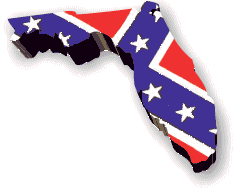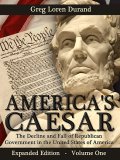|
|
Is the Constitution ... Unconstitutional?(From a column by Harry Beadle - January 2015) The mandates given the delegates to the Federal Convention of 1787 were specific: to amend the Articles of Confederation to eliminate alleged weaknesses in the federal portion of the still relatively new American government. The delegates were appointed by their respective States and given those mandates, instructions contained in official documents passed by their respective legislatures. The mandates were the delegates’ legal authority, their only legal authority. None of the mandates gave them permission to do anything beyond “revising the Federal Constitution” or “revising the Articles (of Confederation).” What the delegates ultimately did, of course, was not to amend the Articles but to replace it with the Constitution, something they had no mandate to do, no legal authority. Thus their actions arguably were illegal, which would make the Constitution itself illegal, despite its certification by the Congress elected under the Articles, its ratification by the States and its acceptance by the courts – not if we are a nation of laws rather than of men. But that isn’t the only issue. The Constitution itself prescribed the method by which it was to be ratified (adopted) or amended. The problem is a ruling document was already in place, a “supreme law of the land” – the Articles. It contained different standards for ratification and amendment, standards much higher than those written into the Constitution. Because the Articles were already in force, any changes, especially the wholesale scrapping of the very form of government the Articles created, should have adhered to the standards contained in it if those changes were to be considered legal and binding. The Articles required the approval of both the Confederation Congress and the unanimous approval of the States before any changes could be made… “…nor shall any alteration at any time hereafter be made in any of them; unless such alteration be agreed to in a Congress of the United States, and be afterwards confirmed by the legislatures of every State.” – Article XIII Neither of those approvals was ever given, and the Constitution’s weaker standards required ratification by only nine of the thirteen States for it to become “supreme law.” A number of delegates, including Patrick Henry and George Mason of Virginia, and Martin Luther of Maryland, questioned the legality of the Constitution. Henry’s reaction upon reading the document for the first time was, “I smell a rat!” Luther put it this way… “Our present Constitution (The Articles of Confederation) expressly directs that all the States must agree before it can be dissolved; but on the other hand it was contended that a Majority ought to govern – That a dissolution of the Federal Government did not dissolve the State Constitutions which were paramount the Confederacy. That the Federal Government being formed out of the State Governments the People at large have no power to interfere in the Federal Constitution, nor has the State or Federal Government any power to confirm a new Institution. That this Government if ratified and Established will be immediately from the People, paramount the Federal Constitution and operate as a dissolution of it.” What Luther said is that existing law – the Articles – was being ignored and a new Constitution forced into place, a Constitution which would destroy a truly federal government (shared power, but with the states most powerful) and replace it with a most-powerful central (national) government, one not of the states but of “the people at large” (“We the people…”), a government which would destroy the Founding. George Mason also pointed out that the form of government created by the new Constitution would trample a primary reason for the very existence of the States: the profound differences in the cultures of their peoples… “Is it to be supposed that one National Government will suit so extensive a country, embracing so many climates, and containing inhabitants so very different in manners, habits, and customs? It is ascertained by history, that there never was a Government, over a very extensive country, without destroying the liberties of the people.” Still, the delegates ignored those differences – and existing law. The argument that the Articles themselves set their own requirements for ratification and amendment doesn’t stand because before they were adopted, the States had no common ruling document, no “supreme law of the land.” Remember that prior to the Revolution, each State (then Colony) was sovereign and independent and answered only to Britain’s King and Parliament, not to a central Colonial government. The States remained sovereign and independent under the Articles… “Each state retains its sovereignty, freedom, and independence, and every power, jurisdiction, and right, which is not by this Confederation expressly delegated to the United States, in Congress assembled.” – Article II Nor can it be argued the Constitution automatically replaced the Articles. Remember: the delegates to the Federal Convention had no legal authority to draw up the Constitution in the first place. No votes were taken to repeal or rescind the Articles, something which could be done only by the States themselves, not by the delegates to the Convention or by the Congress elected under the Articles. No States seceded from the Union that was created by the Articles in order to form a new government. There is no wording in the Constitution which states that it supersedes the Articles. In fact, none of the documents passed by the States to ratify the Constitution so much as mention the Articles of Confederation. And while the States did ratify the Constitution, they were voting on an arguably illegal document created by an illegal action, which effectively makes ratification of the Constitution an illegal act in and of itself, and null and void. Some will argue “stare decisis,” a legal term which translates roughly as “let the decision stand.” The argument here would be that the Constitution has effectively been in force for so long, why change now? But what is more stare decisis than the Articles of Confederation, the original supreme law, a supreme law which was never amended or rescinded? Can any document which purports to be the supreme law of the land be considered such if both the document and its method of adoption were illegal? Can an arguably illegal document be ratified by a process which ignored existing law and which only that illegal document prescribed? Does public, legislative and judicial approval of an illegal action and document somehow bestow legality? Again: not if we are a nation of laws rather than of men. Are we then still governed by the Articles of Confederation, in legal fact if not in popular belief or in executive, legislative or judicial fantasy? If the Articles still are our supreme law, then there is no question the States are sovereign, free and independent, and may interpose, nullify – and secede. Mr. Beadle retired in early 2010 after 42 years as a journalist, working as a redio news anchor and investigative reporter in Mississippi, Tennessee and Georgia, the last 13 years as a news anchor for the CNN radio Network.
|



